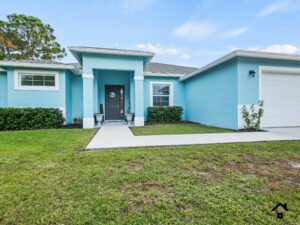What is the difference between a mortgage banker and a mortgage broker?
Simply put, a mortgage banker is a lender, whereas a mortgage broker represents several lending institutions and serves as a liaison between the lender and borrower.
Which is better? The answer is somewhat subjective. Here are some of the benefits of working with each, so you can decide which better meets your needs:
Mortgage Brokers…
The National Association of Mortgage Brokers defines a mortgage broker as an “independent real estate financing professional who specializes in the origination of residential and/or commercial mortgages.”
Brokers work individually with borrowers, collecting information, documentation, and verification to process the loan application.
Once the loan package has been prepared and conditionally approved, the broker searches for an appropriate lender. Because the broker is independent, the mortgage broker has the luxury of searching for a loan based on the customer’s needs rather than the needs of the employer.
After the broker matches the client with a lender, the broker walks the paperwork through final approval, escrow deposits, and loan funding.
Brokers’ fees are paid by the lending institution and therefore are of no consequence to the buyer.
Most banks will allow brokers to charge up to 1% of the loan amount for compensation. Banks are willing to pay this fee to brokers because brokers bring them business and do much of the legwork.
Mortgage Bankers…
As defined by the Mortgage Bankers Association of America, a mortgage banker is an “individual, firm, or corporation that originates, sells, and/or services loans secured by mortgages on real property.”
Mortgage bankers are direct lenders. Working with them eliminates the middleman.
While brokers require final approval from lenders, mortgage bankers themselves approve or reject loans. Also, mortgage bankers may use automated underwriting systems, so working with a banker may prove more expeditious.
Mortgage bankers must have substantial net worth if they are to survive.
Brokers, on the other hand, need only a storefront and telephone in order to set up shop.
Because they are competing with both other bankers and brokers, mortgage bankers have no choice but to maintain competitive rates.
You can choose
If you are needing a loan to buy a home in this area, one of the first questions I will ask you is “Have you talked with a lender?”
Since so many options and programs exist, I have a handful of mortgage bankers and mortgage brokers I can refer you to. They are licensed in the state and are highly professional in what they do.
Once you have a conversation with one, you’ll know your purchasing power and we can begin looking for your next home.



